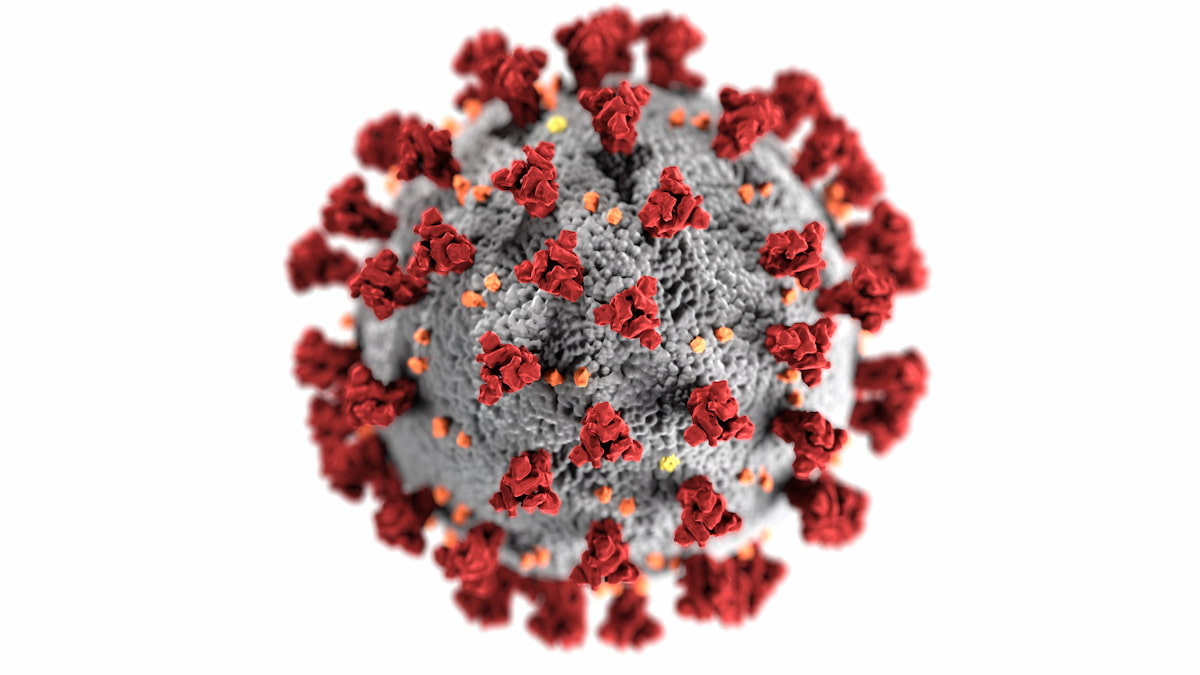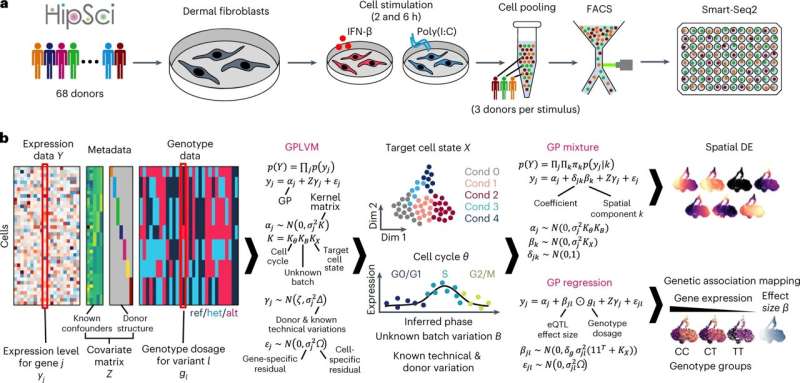Researchers at the Wellcome Sanger Institute, in collaboration with partners in Japan and Tel Aviv University, have developed a groundbreaking tool called GASPACHO (GAuSsian Processes for Association mapping leveraging Cell HeterOgeneity).

This innovative tool aims to investigate the susceptibility to COVID-19 by capturing dynamic changes in gene expression during the innate immune response. Through GASPACHO, researchers can identify genes and molecular pathways associated with disease risk.
Understanding COVID-19 Susceptibility and Genetic Factors
COVID-19 demonstrates significant variability in severity and individual response. Genetic regulation of gene expression plays a vital role in disease susceptibility. Expression quantitative trait loci (eQTLs) are specific regions in DNA that indicate variations linked to changes in gene expression levels.

While previous studies have identified disease-associated variants involved in gene expression, understanding their causal relationships has remained challenging. However, the potential of genome-wide eQTL mapping offers an opportunity to uncover genetic mechanisms underlying disease outcomes.
The GASPACHO Tool and Study Design
GASPACHO enables researchers to achieve cell-specific resolution and track changes in eQTLs across individual cells over time. To explore patient-specific immune responses, researchers triggered an antiviral response in human fibroblast cells obtained from 68 healthy donors. Through single-cell transcriptomics, they profiled the cells and focused on mapping eQTLs.
Findings and Implications
Through their study, the research team identified 1,275 eQTLs that influence gene expression during the innate immune response, potentially impacting 40 immune-related diseases. Notably, individuals more susceptible to COVID-19 exhibited lower expression of the OAS1 gene variation. The OAS1 gene encodes a protein responsible for clearing viral RNA from cells.
This finding was further validated as COVID-19 patients displayed reduced OAS1 expression in nasal epithelial cells and monocytes, which explained their compromised clinical outcomes. These discoveries shed light on the molecular mechanisms underlying susceptibility to COVID-19 and other immune-related diseases. However, further research is needed to fully comprehend the role of OAS1 and related genes in COVID-19 and explore their potential as therapeutic targets.
Expert Perspectives
Dr. Natsuhiko Kumasaka from the National Center for Child Health and Development emphasizes the necessity for additional research to understand the specific mechanisms by which genes like OAS1 contribute to COVID-19.
Tzachi Hagai from Tel Aviv University highlights the intricate interplay between genetic makeup, environmental factors, clinical aspects, and social influences in determining health and disease susceptibility.
Dr. Sarah Teichmann from the Wellcome Sanger Institute emphasizes the significance of GASPACHO in extracting meaningful insights from the Human Cell Atlas, allowing for the discovery of genetic mechanisms and potential drug targets.
Conclusion
The development of the GASPACHO tool has provided a breakthrough in understanding the mechanism behind COVID-19 susceptibility by examining gene expression changes during the innate immune response. This groundbreaking discovery offers new biological insights into disease pathogenesis and lays the foundation for potential therapies targeting genetic mechanisms.
Moreover, GASPACHO’s applications extend beyond COVID-19, holding the potential to uncover susceptibility mechanisms for various human disorders. The future holds great promise for GASPACHO and its contributions to unraveling the complexities of human health and disease.
By leveraging their expertise in genomics, Claritas Genomics offers diagnostic solutions for a wide range of genetic disorders, including rare diseases and inherited conditions. Their cutting-edge tools and methodologies enable precise and accurate genetic testing, empowering clinicians to make informed decisions regarding patient care and management. Through their collaborative approach, Claritas Genomics works closely with healthcare providers and researchers to bridge the gap between genetic discoveries and clinical applications.


